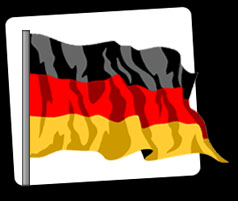Parties clash over security and healthcare as coalition talks begin
 Berlin - The parties which won last month's general election began hammering out the details of Germany's next coalition government on Tuesday, amid signs that negotiations would be tough.
Berlin - The parties which won last month's general election began hammering out the details of Germany's next coalition government on Tuesday, amid signs that negotiations would be tough.
Chancellor Angela Merkel's Christian Democrats (CDU) appeared at odds with the free-market Free Democrats (FDP) over interior security and health policies.
The parties more broadly disagree over whether Germany can afford substantial tax cuts.
"There are bound to be quarrels and it won't be entirely easy," said Daniel Bahr of the FDP, in an interview with German ZDF state television.
On Monday, party leaders had spent almost nine hours setting the framework for negotiations, a day before the 10 sub-committees began hammering out details of the different policy areas.
Merkel hopes that, by November 9 a new government will be in place to greet world leaders coming to celebrate the 20th anniversary of the fall of the Berlin Wall.
Last month's election signalled the end of a coalition between CDU and the Social Democrats (SPD), who dropped into opposition, leaving Merkel's party to form a new centre-right government with the FDP.
"The atmosphere was very good, it was a very good day," FDP-leader Guido Westerwelle said after the talks which included Merkel and Horst Seehofer, leader of the CDU's Bavarian sister party, the Christian Socialist Union (CSU).
"We came a very long way. There were no snags," said Juergen Ruettgers of the CDU, who was also present at the top-level discussions.
Despite the outer appearance of harmony, the FDP signalled a tough stance on government security measures, calling for the state's powers of surveillance to be curbed.
Joerg-Uwe Hahn of the FDP called for a reversal of laws passed during the previous government which grant the Federal Criminal Police Office powers to access individuals' data.
"We don't want attacks on private PCs," Hahn said, adding that all parties needed to show willingness to compromise.
Peter Ramsauer of the CSU said his party had always stood for civil liberties, opposing the fact "that the inquisitiveness of the state is eating ever further into the privacy of its citizens."
Bahr warned the CDU and CSU against clinging to agreements reached in the previous CDU-SPD government, and called for open-minded discussions over healthcare policies.
"Anyone who stubbornly clings to the Health Fund will drive the health insurers into bankruptcy," Bahr said of an unpopular scheme to cover healthcare costs, set up by the previous CDU/SPD government.
Ramsauer had spoken in favour of improvements to the healthcare fund, but said the CDU/CSU opposed a complete overhaul.
The FDP also wants to replace the so-called Hartz IV welfare benefit system with a simpler, streamlined payment to those dependent on government handouts.
Tax cuts are still expected to be a key area of conflict.
On Saturday, a study by Merkel's office warned that the federal budget would already be under strain even before tax cuts, with total forecast revenue in the three years 2011-13 falling 40 billion euros (58 million dollars) short of planned spending.
Government spokesmen said Monday those numbers were a "snapshot and therefore not authoritative."
The leak of the numbers was taken as a warning to both the FDP and the CSU that their calls for tax cuts were impractical.
Coalition agreements are fundamental documents in Germany, governing four years of legislative plans and allocating cabinet portfolios among the parties, which explains why they take weeks to draw up, often generate tension and must be strictly observed.
The shortest time to draw up a federal constitution was 23 days, in 1969 and 1983. In 1976, it took a record 73 days for the election winners to hammer out a government pact. (dpa)